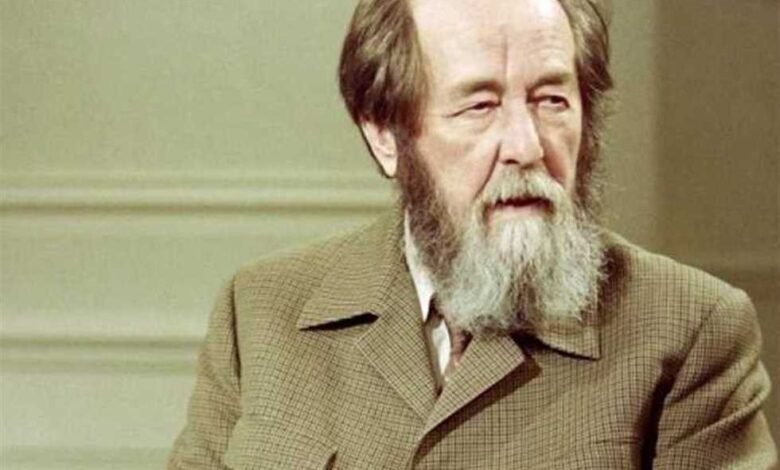“Costume de hoje” .. A morte do escritor russo (Solgensen) 3 de agosto de 2008

The Russian novelist and historian Alexander Solgensten was one of the most important and most opponents of the totalitarian regime in the Soviet Union, and he was chasing his writings the deviations of this regime and its abuse of the dignity of its citizens, as he revealed the coercive work camps in the Soviet Union, through (the archipelago) and (a day in the life of Ivan Densovich) The novelist, Solgentsin enfrentou o sistema holístico soviético por longas décadas e uma grande causa da liderança do país e seu aparato de segurança, forçando o cargo político do Partido Comunista Soviético a tomar uma decisão de prendê -lo e removê -lo em 13 de fevereiro de 1974, de onde foi reagido na Alemanha Ocidental e lá a América, na qual ele ficou em 1974, em 1974, foi reagido em 1974, onde foi reagido na Alemanha Ocidental, e lá a América, em 13 de fevereiro de 1974. Prêmio.
During his childhood, his mother- after the death of his father in 1925- had moved him to reside in the city of Rostov, where he finished his high school and then graduated from the College of Physics and Mathematics, as he studied for two years before the war at the Faculty of Arts at the Institute of Literature, Philosophy and History in Moscow, then he joined the army in December 1942 and fought on more than one front and in August 1943 granted the Ordem da Guerra Nacional e continuou a participar da guerra até ser preso e sentenciado à prisão, ele está com o posto de capitão devido a mensagens que enviou a seu amigo, que incluiu uma crítica explícita a Stalin (chefe de poder) e passou o período de um segredo de um segredo.
Ele ficou na província de Valdimir e trabalhou como professor de dois anos em uma escola de vila e morava na fazenda Matriona Zakharova, cuja história conhecida (Beit Matriona) era então professora na província de Rizan e esse período foi escrito. Desde 1989, os escritos de Solgensen começaram a publicar novamente em sua terra natal e a nacionalidade soviética foi devolvida a ele, e as autoridades soviéticas permitiram que ele retornasse à Rússia após vinte anos de exílio especificamente em maio de 1994 até morrer em 3 de agosto de 2008.




